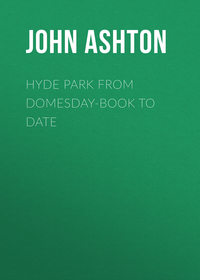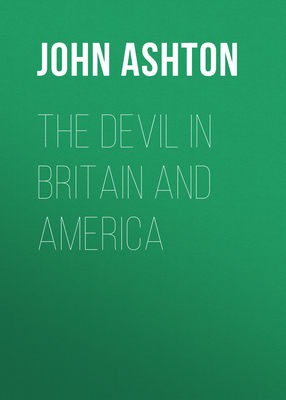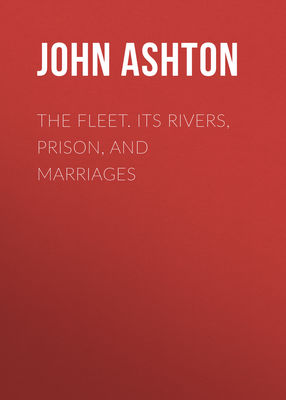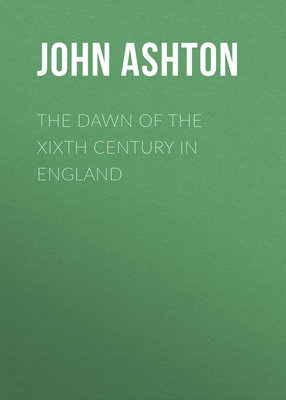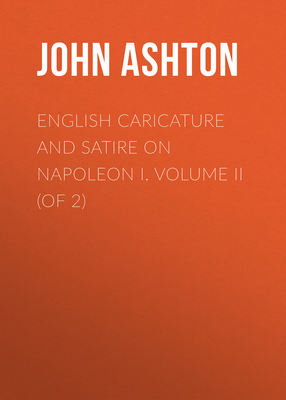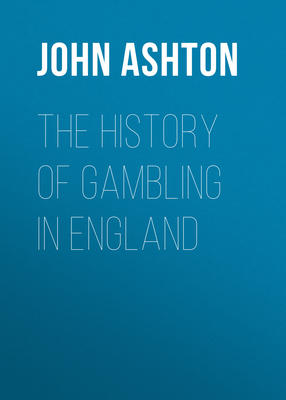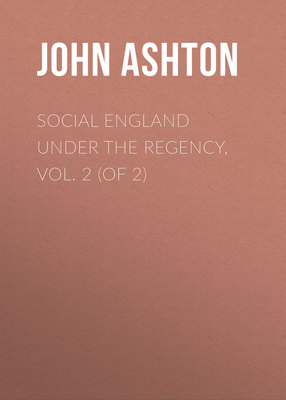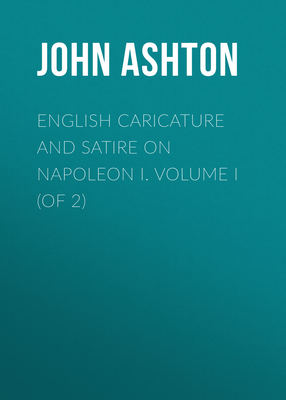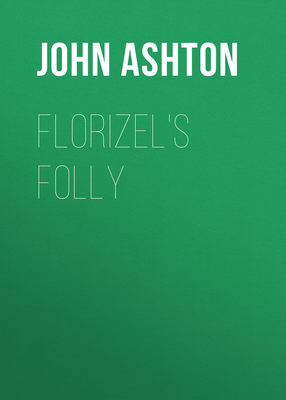Kitabı oku: «Hyde Park from Domesday-book to Date», sayfa 3
CHAPTER V
Duelling in Hyde Park
The first duel in Hyde Park (chronicled in the Gentleman’s Magazine, which commenced in 1731) is one fought on February 24, 1750, “between Admiral Knowles and Captain Holmes, with pistols, when two or three shots were exchanged on each side, but no hurt was done. His majesty being informed that more challenges were depending, particularly four Challenges sent to the said Admiral, order’d three officers into Custody.” But the bellicose officers under his command did not care for that example, and on March 12 next ensuing, “at 7 in the morning was fought in Hide Park, a duel with sword and pistol between Capt. Clarke and Capt. Innes, belonging to Admiral Knowles’s squadron; Captain Clarke fired first, and the ball went through Capt. Innes’s breast into his body, of which wound he dy’d at 12 o’clock at night; the Coroner’s jury brought it in wilful murder.” Captain Clarke was sentenced to be hanged, but was respited. If the facts brought out at the trial were true, he ought to have suffered the extreme penalty of the law, for his pistols were rifled, with barrels 7 inches long, whilst those of his antagonist were only ordinary pocket pistols, with barrels about 3½ inches in length; and they were not more than five yards distant from each other, when they turned about, and Captain Clarke fired before Captain Innes had levelled his pistol.
“Jan. 5, 1762. A duel was fought in Hyde Park between an English officer and an Irish gentleman, when the former was so dangerously wounded in the belly, that his life has been despaired of. He is now, however, in a fair way of doing well… A lady in Bond Street, said to be nearly related to the young officer who was wounded in Hyde Park, shot herself through the head with a pistol, and died in great agonies.”
“May 13, 1769. A duel was fought between two gentlemen in Hyde Park, occasioned by a quarrel at Vauxhall, one of them was run thro’ the sword arm, and the other wounded in the thigh, after which they were parted by their seconds.”
“July 19, 1769. A duel is said to have been lately fought in Hyde Park between a Captain Douglas and the Rev. Mr. Green, who some time ago was tried for a rape at the Old Bailey, and acquitted. Mr. Green, it seems, disabled the Captain in his sword arm; but, what is the wonderful part of the story, the Captain Douglas, whom the Rev. Mr. Green disabled, cannot be found, so that it is supposed this parson, as the humourous sexton of a neighbouring parish says, never fights with a man but he buries him.”
“Mar. 17, 1770. A duel was fought in Hyde Park, between George Garrick Esqre and Mr. Baddeley, both of Drury Lane Theatre, when the former, having received the other’s fire, discharged his pistol in the air, which produced a reconciliation.”
George Garrick was the brother of David, the celebrated actor, and Baddeley is notable for two things, one, as being the last of the “King’s Servants” (as the actors at the two patent theatres were called) who wore his master’s scarlet livery, and the other in leaving a small legacy to provide cake and wine for the green room of Drury Lane Theatre every Twelfth Night; a custom which, for some time, was in abeyance, but has been revived, in a most liberal and costly manner, by Sir Augustus Harris.
The somewhat bald notice in the Gentleman’s Magazine of this duel, is supplemented by a more extended one in the Town and Country Magazine for March, 1770. “The world have been so ill natured as to suggest that Mrs. B – y had formed a connection with the late Mr. H – d: and that Mr. M – z has since been his happy successor. These reports, whether true or false, occasioned some altercation between Mr. B – y and his wife; and, through resentment, he received her salary, without accounting to her for it.
“Mr. G – e G – k remonstrated with Mr. B – y upon his conduct, which so much displeased him, that he wrote a letter of complaint upon the occasion to Mr. D – d G – k. This epistle being shown to Mr. G – e G – k, he strongly resented it the next time he saw Mr. B – y, who, thereupon, challenged him. In consequence whereof, (after Mr. D – d G – k, had ineffectually endeavoured, for nearly three hours, to dissuade his brother from this hostile design) Mr. G – e G – k engaged Mr. S – s, the attorney, for his second; and Mr. B – y had sufficient influence over his supposed rival, Mr. M – z, to induce that gentleman to become his second.
“These preliminaries being adjusted, they repaired to Hyde Park, and the seconds having marked out the ground, Mr. B – y had already fired at his antagonist, when his wife, who had received intimation of the affair, flew upon the wings of love, (that is, in a hackney coach,) to the field of battle; and, arriving at this critical time, threw herself upon her knees; and, whilst she looked very languishing, (but whether at her lover, or her husband, is not certain) cried out ‘Oh! spare him! spare him!’ which entreaty, it is imagined, induced Mr. G – k to fire his pistol in the air, and a reconciliation took place.
“Mr. Davis, our wooden engraver, passing by at the time, was a spectator of the whole transaction, which enabled him to give our readers so lively and picturesque a representation as that annexed, of this curious and uncommon scene; from which there can, no doubt, remain, but that they were both left-handed upon this occasion.”
“Oct. 15, 1771. About eight o’clock in the morning, a duel was fought in Hyde Park, between Major B. and T., a gentleman of great fortune in Yorkshire; when, after discharging a pistol each, the latter received a wound in the side, and was immediately carried in a coach to the house of a surgeon near Piccadilly. It is said the dispute arose from Mr. T. having, a few days since, insulted Major B. for shooting upon part of his estate, without being authorized to do so.”
Here is a duel caused by what was afterwards called “The War of American Independence,” which, however, at the time of its occurrence, had not commenced, although it was imminent.
“Dec. 11, 1773. A duel was fought in Hyde
Park between Mr. Whateley, banker in Lombard Street, brother to Mr. Whateley, late Secretary to the Treasury, and John Temple Esqre, Lieutenant-Governor of New Hampshire, when the former was dangerously wounded. The cause of the quarrel was the discovery of the confidential letters written by Messrs. Hutchinson, Oliver, Paxton, etc., which were lately laid before the assembly at Boston, and have since been published in most of the London papers.”
The next I record has one name well known to literature as a principal, that of “Fighting Parson Bate,” otherwise the Reverend Henry Bate – afterwards Sir Henry Bate Dudley – who is mainly remembered as having founded two newspapers of note, namely the Morning Post and the Morning Herald. “Sep. 14, 1780. A duel was fought in Hyde Park between the Rev. Mr. Bate and Mr. R.,27 one of the proprietors of the Morning Post, occasioned by some reflections cast by the former on the whole body of the proprietors, which was resented by the latter. Mr. Bate fired first, and wounded his antagonist in the muscular part of his arm, the other without effect; and then the seconds interposed, and the matter was accommodated.”
One of the most vindictive duels I have read of is that which took place on October 1st, 1797. The principals were Colonel King, afterwards Lord Lorton, and a Colonel Fitzgerald, who, although a married man, had eloped with Colonel King’s sister. The following is the account given by the gentleman who acted as second to both parties.
“Agreeable to an arranged plan I accompanied Colonel King to a spot near the Magazine in the Park. Colonel Fitzgerald we met at Grosvenor Gate, unaccompanied by a friend, which, by the way, he told me yesterday, he feared he should not be able to provide, in consequence of the odium which was thrown upon his character; at the same time observing ‘that he was so sensible of my honour, that he was perfectly satisfied to meet Colonel King unattended by a friend.’ I decidedly refused any interference on his part, informing him ‘that had not nearer relations of the – been on the spot, he would have seen me as a principal.’ He replied, ‘he would try to procure a friend;’ and withdrew. I addressed him this morning by ‘where is your friend, Sir?’ Answer (as well as I recollect), ‘I have not been able to procure one: I rest assured that you will act fairly.’ – I then desired him to apply to his surgeon; which he immediately did, who refused appearing as a second, but said he would be within view. Colonel K. was equally desirous to go on with the business. – I consented. However, I prevailed upon a surgeon, who accompanied Dr. Browne, to be present, as a witness that all was fairly conducted. It was no common business.
“I placed them at ten short paces distance from each other; that distance I thought too far: but I indulged a hope that Colonel F., sensible of the vileness of his conduct, would, after the first fire, have thrown himself on Colonel K.’s humanity. His conduct was quite the reverse; in short, they exchanged six shots each, without effect. K. was cool and determined; – the other, also, determined, and to appearance obstinately bent on blood; after the fourth shot, he said something to me about giving him advice as a friend. I told him I was no friend of his, but that I was a friend to humanity; that if, after what had passed, he possessed firmness enough to acknowledge to Colonel K. that he was the vilest of human beings, and bear, without reply, any language from Colonel K., however harsh, the present business, then, perhaps, might come to a period. He consented to acknowledge that he had acted wrong, but no farther; – that was not enough. He now attempted to address Colonel K., who prevented him, saying ‘he was a d – d villain, and that he would not listen to anything he had to offer.’ They proceeded. Colonel F.’s powder and balls were now expended; he desired to have one of K.’s pistols. To this I would not consent, though pressed to do so by my friend. Here ended this morning’s business – we must meet again; it cannot end here…
“P.S. – On leaving the ground, Col. F. agrees to meet Col. K. at the same hour to-morrow.
“Both the Colonels the same day were put under arrest.”
Another duel, which I may almost stigmatize as brutal, occurred on March 11th, 1803. “This morning, a most extraordinary duel took place in Hyde Park, between Lieutenant W. of the Navy, and Captain J. of the Army. The antagonists arrived at the appointed place within a few minutes of each other. Some dispute arose respecting the distance, which the friends of Lieutenant W. insisted should not exceed six paces, while the seconds of Captain J. urged strongly the rashness of so decisive a distance, and insisted on its being extended. At length, the proposal of Lieutenant W.’s friends was agreed to, and the parties fired per signal, when Lieutenant W. received the shot of his adversary on the guard of his pistol, which tore away the third and fourth fingers of his right hand. The seconds then interfered, to no purpose; the son of Neptune, apparently callous to pain, wrapped his handkerchief round his hand, and swore he had another which never failed him. Captain J. called his friend aside, and told him it was vain to urge a reconciliation. They again took their ground. On Lieutenant W. receiving his pistol in his left hand, he looked steadfastly at Captain J. for some time, then cast his eyes to Heaven, and said, in a low voice, ‘Forgive me.’ The parties fired as before, and both fell. Captain J. received the shot through his head, and instantly expired; Lieutenant W. received the ball in his left breast, and immediately inquired of his friend if Captain J.’s wound was mortal. Being answered in the affirmative, he thanked Heaven he had lived thus long; requested a mourning ring on his finger might be given to his sister, and that she might be assured it was the happiest moment he ever knew. He had scarcely finished the words when a quantity of blood burst from his wound, and he expired almost without a struggle. The unfortunate young man was on the eve of being married to a lady in Hampshire, to whom, for some time, he had paid his addresses.”
The last duel I find connected with Hyde Park, but was fought at Chalk Farm, is the following: “April 6th, 1803. This morning, as Lieutenant-Colonel Montgomery and Captain Macnamara were riding in Hyde Park, each followed by a Newfoundland dog, the dogs fought; in consequence of which the gentlemen quarrelled, and used such irritating language to each other, that a change of addresses followed, with an appointment to meet at 7 o’clock the same evening near Primrose Hill; the consequences of which proved fatal.”
Lord Burghersh, in giving evidence before the coroner’s jury, spoke of the triviality of the offence given and received by these two hot-headed idiots. He said, “On coming out of St. James’s Park on Wednesday afternoon, he saw a number of horsemen, and Colonel Montgomery among them; he rode up to him; at that time he was about twenty yards from the railing next Hyde Park Gate. On one side of Colonel Montgomery was a gentleman on horseback, whom he believed was Captain Macnamara. The first words he heard were uttered by Colonel Montgomery, who said: ‘Well, Sir, and I will repeat what I said, if your dog attacks mine, I will knock him down.’ To this, Captain Macnamara replied, ‘Well, Sir, but I conceive the language you hold is arrogant, and not to be pardoned.’ Colonel Montgomery said: ‘This is not the proper place to argue the matter; if you feel yourself injured, and wish for satisfaction, you know where to find me.’ ”
Montgomery fell, mortally wounded, and Macnamara was tried at the Old Bailey, on 22nd March, for manslaughter. Lords Hood, Nelson, Hotham, and Minto, and a great number of highly respectable gentlemen gave him an excellent character, and, in spite of the judge’s summing up, the jury went against his directions, and acquitted the Captain.
Larwood says that the last affair of honour which took place in Hyde Park was in April, 1817, when the Hon. H. C. and a Mr. John T. fired twice at each other and were both wounded; but, as I cannot verify this duel, I give it under all reserve.
The last fracas in Hyde Park that I can trace took place on July 12th, 1870, between Majors Gordon and Kane, retired officers in the Indian service, the combatants belabouring each other with their sticks, in retaliation for an affront alleged to have been offered at a private dinner-table.
CHAPTER VI
Skating on the ponds and Serpentine – The Ring – Many notices thereof – Fireworks in the Park – Bad roads therein, and accidents caused thereby – Regulations in the time of Queen Anne – Making the drive – Riding in the Park.
Soon after the opening of the Park to the public, the water therein was utilized, during a hard frost, for skating, as Pepys tells us in his diary: “Dec. 8th, 1662. Then into the Parke to see them slide with their skeates, which is very pretty. Dec. 15th. Up and to my Lord’s, and thence to the Duke,28 and followed him into the Parke, where, though the ice was broken and dangerous, yet he would go slide upon his scates, which I did not like, but he slides very well.”
This must have been, in all probability, on one of the pools in the park – as it was not till 1730 that Queen Caroline, wife of George II., began to make “the Serpentine,” as the lake in Hyde Park is called. After that was finished, and a good hard frost came, so that it was frozen hard, it was the resort of the few of the upper classes who could skate. I do not say it was reserved for them, but in those days there were no cheap omnibuses from Whitechapel, and London was but a very small portion of its present overgrown bulk. At all events, in the last century, people could skate without overcrowding, or annoyance from bands of roughs, such as obtain at the present day, as is well shown in the accompanying illustration of “Winter Amusement, a view in Hyde Park, from the Sluice at the East End, 1787.” Royalty, in the person of George, Prince of Wales, did not object to disport itself on the lake, and not being overcrowded, we never hear of the ice breaking, or lives being lost until 1794, when a building was erected on the site of the present Receiving House of the Royal Humane Society, wherein those suffering from injuries or immersion could be attended to.
But the chief use of the Park as a place of fashionable relaxation was driving within its precincts, and especially in the “Ring,” a small enclosure, which is shown in the 1747 map, just where is the letter “A” in “Park.” The practice seems to have obtained as soon as the Park was thrown open to the public, and we have already seen how, in the Commonwealth time, a charge was made for the entrance both of carriages and horses. On May Day, however, was the finest show. Possibly that then, as now, the coaches were renovated, and the horses had new harness. We learn something of this in a very serious tract, published in 1655, with a very long title, a portion of which is: A serious Letter sent by a Private Christian to the Lady Consideration, the first day of May, 1655, which commences thus: —
“Lady, I am informed fine Mrs. Dust, Madam Spot, and my Lady Paint, are to meet at Hide-Park this afternoon; much of pride will be there: if you will please to take an Hackney, I shall wait upon your Honour in a private way: But, pray, let us not be seen among the foolish ones, that ride round, round,
wheeling of their coaches about and about, laying of the naked breast, neck and shoulders over the boot, with a Lemon and a Fan, shaking it at young Mrs. Poppet, crying, Madam your humble servant, your very humble servant, while some are doing worse. Young Sir William Spruce, Mounseir Flash, and the Lord Gallant, will be all on horseback,” etc.
But the gossiping pages of Pepys furnish us with a good view of Hyde Park, and I have, therefore, selected some quotations as illustrative.
“April 30, 1661. I am sorry that I am not at London, to be at Hide-Parke to-morrow, among the great gallants and ladies, which will be very fine.
“May 7, 1662. Thence to Paul’s Church Yard; where seeing my Ladys Sandwich and Carteret, and my wife (who, this day, made a visit for the first time to my Lady Carteret) come by coach, and going to Hide-Parke, I was resolved to follow them; and so went to Mrs. Turner’s: and thence found her out at the Theatre; where I saw the last act of the ‘Knight of the burning Pestle,’ which pleased me not at all. And so, after the play done, she and The. Turner and Mrs. Lucin and I, in her coach to the Parke; and there found them out, and spoke to them; and observed many fine ladies, and staid till all were gone almost.
“April 4, 1663. After dinner to Hide Parke: my aunt, Mrs. Wight and I in one coach, and all the rest of the women in Mr. Turner’s… At the Parke was the King, and in another coach my Lady Castlemaine, they greeting one another at every tour.29
“April 18, 1664. To Hide Parke, where I had not been since last year; where I saw the King with his periwigg, but not altered at all; and my Lady Castlemaine in a coach by herself, in yellow satin and a pinner on; and many brave persons. And myself being in a hackney and full of people, was ashamed to be seen by the world, many of them knowing me.
“April 22, 1664. I home, and by coach to Mrs. Turner’s and there got something to eat, and thence, after reading part of a good play, Mrs. The., my wife and I, in their coach to Hide Parke, where great plenty of gallants, and pleasant it was, only for the dust. Here I saw Mrs. Bendy, my Lady Spillman’s faire daughter that was, who continues yet very handsome. Many others I saw with great content, and so home.
“March 19, 1665. Mr. Povy and I in his coach to Hyde Park, being the first day of the tour there. Where many brave ladies; among others, Castlemaine lay impudently upon her back, in her coach, asleep, with her mouth open.
“April 24, 1665. So by coach with my Wife and Mercer to the Parke; but the King being there, and I, now-a-days being doubtfull of being seen in any pleasure, did part from the tour, and away out of the Parke to Knightsbridge, and there eat and drank in the coach, and so home.
“April 21, 1666. Thence with my Lord Brouncker in his coach to Hide Parke, the first time I have been there this year. There the King was; but I was sorry to see my Lady Castlemaine, for the mourning forceing all the ladies to go in black, with their hair plain and without any spots, I find her to be a much more ordinary woman than ever I durst have thought she was; and, indeed, is not so pretty as Mrs. Stewart, whom I saw there also.
“May 1, 1667. Thence Sir W. Pen and I in his coach, Tiburne way, into the Park, where a horrid dust, and number of coaches, without pleasure, or order. That which we, and almost all went for, was to see my Lady Newcastle; which we could not, she being followed and crowded upon by coaches all the way she went, so that nobody could come near her: only I could see she was in a large black coach, adorned with silver instead of gold, and so white curtains, and everything black and white, and herself in her Cap. But that which I did see, and wonder at with reason, was to find Peg Pew in a new coach, with only her husband’s pretty sister with her, both patched and very fine, and in much the finest coach in the park, and I think that ever I did see one or other, for neatness and richness in gold and everything that is noble. My Lady Castlemaine, the King, My Lord St. Alban’s, Mr. Jermyn, have not so neat a coach that ever I saw. And, Lord! to have them have this, and nothing else that is correspondent, is, to me, one of the most ridiculous sights that ever I did see, though her present dress was well enough; but to live in the condition they do at home, and be abroad in this coach astonishes me.
“March 27, 1668. To the Exchange a turn or two, only to show myself, and then home to dinner, where my wife and I had a small squabble, but I first this day tried the effect of my silence, and not provoking her when she is in an ill-humour, and do find it very good, for it prevents its coming to that height on both sides, which used to exceed what was fit between us. So she became calm, by and by, and fond, and so took coach to Hide Park, where many Coaches, but the dust so great that it was troublesome.
“March 31, 1668. So took up my wife and Deb., and to the Park, where, being in a hackney, and they undressed, was ashamed to go into the tour, but went round the Park, and so, with pleasure, home.
“July 10, 1668. Thence in the evening, with my people in a glass hackney-coach to the park, but was ashamed to be seen. So to the lodge, and drank milk, and so home.”
But it was not for long that his pride was to be thus hurt, for he started a coach of his own, which came home on the 28th Nov., 1668, and which must have been a very gorgeous turn-out, if we can believe a description of it in a pamphlet called Plain Truth, or a Private Discourse between P(epys) and H(arbord). “There is one thing more you must be mightily sorry for with all speed. Your presumption in your coach, in which you daily ride, as if you had been son and heir to the great Emperor Neptune, or as if you had been infallibly to have succeeded him in his government of the Ocean, all which was presumption in the highest degree. First, you had upon the fore part of your Chariot, tempestuous waves and wrecks of ships; on your left hand, forts and great guns, and ships a fighting; on your right hand was a fair harbour and galleys riding, with their flags and pennants spread, kindly saluting each other, just like P(epys) and H(ewer). Behind it were high curled waves and ships a sinking, and here and there an appearance of some bits of land.”
Now he could ride in the Park with pleasure, as he notes, “March 18, 1669. So my wife and I to Dancre’s to see the pictures; and thence to Hyde Park, the first time we were there this year, or ever in our own coach, when with mighty pride rode up and down, and many coaches there; and I thought our horses and coach as pretty as any there, and observed to be so by others.”
But this coach evidently was not grand enough for him, for we read: “April 30, 1669. This done, I to my coachmaker’s, and there vexed to see nothing yet done to my coach, at three in the afternoon; but I set it in doing, and stood by it till eight at night, and saw the painter varnish it, which is pretty to see how every doing it over, do make it more and more yellow: and it dries as fast in the sun as it can be laid on almost; and most coaches are, now-a-days, done so, and it is very pretty when laid on well, and not too pale, as some are, even to show the silver.”
Of course he must needs show this off at once, and on May Day, he duly made his appearance in the Park. “At noon, home to dinner, and there find my wife extraordinary fine, with her flowered tabby gown that she made two years ago, now laced exceeding pretty; and, indeed, was fine all over; and mighty earnest to go, though the day was very lowering; and she would have me put on my fine suit, which I did. And so, anon, we went alone through the town with our new liveries of serge, and the horses’ manes and tails tied with red ribbons, and the standards gilt with varnish, and all clean, and green reines, that people did mightily look upon us; and the truth is, I did not see any coach more pretty, though more gay, than our’s all the day … the day being unpleasing, though the Park full of Coaches, but dusty, and windy, and cold, and now and then, a little dribbling of rain; and, what made it worse, there were so many hackney coaches, as spoiled the sight of the gentlemen’s; and so we had little pleasure. But here was W. Batelier and his sister in a borrowed coach by themselves, and I took them and we to the lodge: and, at the door, did give them a syllabub and other things, cost me 12s., and pretty merry.”
Next day, he went again. “After dinner, got my wife to read, and then by coach, she and I, to the Park, and there spent the evening with much pleasure, it proving clear after a little shower, and we mighty fine, as yesterday, and people mightily pleased with our Coach, as I perceived; but I had not on my fine suit, being really afraid to wear it, it being so fine with the gold lace, though not gay.”
But he was destined to undergo the humiliation of hearing his friends’ criticisms on his new-born finery. “May 10th, 1669. Thence walked a little with Creed, who tells me he hears how fine my horses and coach are, and advises me to avoid being noted for it, which I was vexed to hear taken notice of, being what I feared: and Povy told me of my gold laced sleeves in the park yesterday, which vexed me also, so as to resolve never to appear in Court with them, but presently to have them taken off, as it is fit I should, and so called at my tailor’s for that purpose.”
One more quotation, to show that fireworks were exhibited in the Park, and I have done with Pepys. “May 29th, 1669. Home to dinner, and then with my wife to Hyde Park, where all the evening; great store of company, and great preparations by the Prince of Tuscany to celebrate the night with fireworks, for the King’s birthday.”
From that time to the present the Park has always been a fashionable drive, not always attended with safety to its frequenters: witness two accidents there in 1739. The London Daily Post, of Sept. 19, 1739, says: “On Monday evening last, as their Royal Highnesses the four Princesses [daughters of George II.] were coming to town from Kensington, a single Horse Chaise, with a Gentleman and his daughter in it, drove against the leading Coach in Hyde Park; the Chaise at length overturned, and the Horse falling under the Horses of the leading Coach, put them into such confusion, that four of them came down, and trampled for some time on the Horse and Chaise; the Gentleman and his daughter were much hurt, and the Postillion to the leading Coach had his Thigh broke by his fall; the Princesses were extreamly frightened, and cry’d out for Help. Several Persons came up to their Assistance; they returned to Kensington and were blooded: the Postillion is attended by the King’s Surgeons.”
Closely following on this was another accident, as we read in The Weekly Miscellany of Oct. 20, 1739. “Sunday night last his Grace the Duke of Grafton, coming from Kensington, and ordering his Coachman to drive to the New Gate in Hyde Park, in order to make some Visits towards Grosvenor Square, the Chariot, through the Darkness of the Night, was overset in driving along the Road, and, falling into a large, deep Pit, the Duke slipt his Collar bone, and the Coachman broke his Leg, which was splintered in many Places: and on Monday, the Limb was taken off by Amputation. One of his Grace’s Footmen was, also, much hurt.”
Even in Queen Anne’s reign it was found necessary to issue some rules and directions (July 1, 1712) “For the better keeping Hyde Park in good Order.” The gatekeepers were to be always on duty, and not to sell ale, brandy, or other liquors. No one should leap over the ditches or fences, or break the latter down. “No person to ride over the grass on the South side of the Gravelled Coach Road … excepting Henry Wise, who is permitted to pass cross that Part of the Park leading from the Door in the Park Wall, next his Plantation.” No grooms nor others were to ride over the banks, or slopes, of any pond. No stage coach, hackney coach, chaise with one horse, cart, waggon, nor funeral should pass through the Park, and no one cut or lop any of the trees.
Henri Misson came over to England in the reign of James II., and published his experiences, which were translated by John Ozell, in 1719. Speaking of Hyde Park, he says, “The King has a Park so call’d at the end of one of the suburbs of London. Here the People of Fashion take the Diversion of the Ring: In a pretty high place, which lies very open, they have surrounded a Circumference of two or three hundred Paces Diameter with a sorry kind of Ballustrade, or rather with Poles plac’d upon Stakes, but three Foot from the ground; and the Coaches drive round and round this; when they have turn’d for some Time round one Way, they face about and turn t’other; So rowls the World.”
